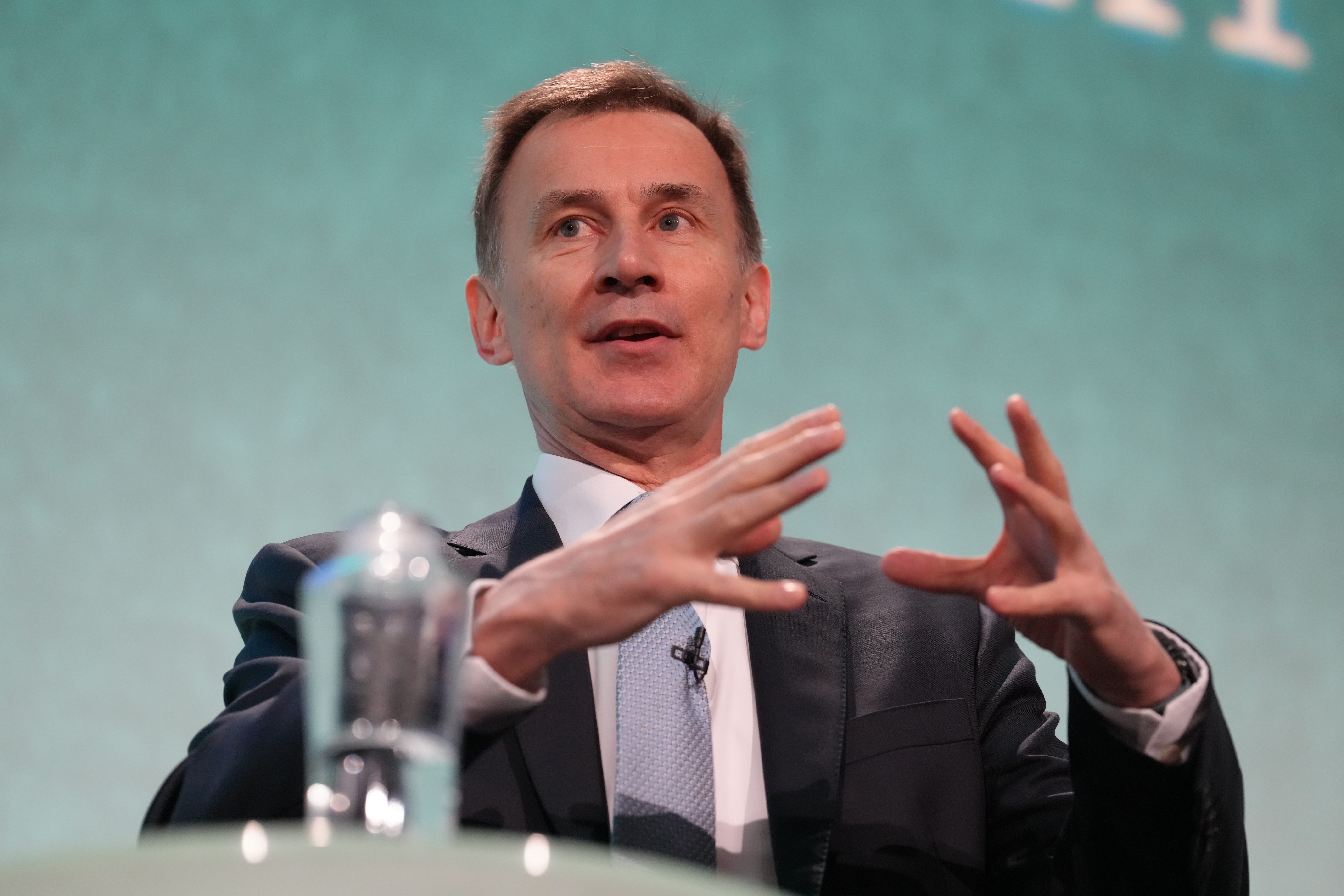Chancellor Jeremy Hunt announces date for 2024 spring Budget
Tories expected to seek tax cuts in appeal to voters as they founder 20 points behind Labour in polls
Your support helps us to tell the story
From reproductive rights to climate change to Big Tech, The Independent is on the ground when the story is developing. Whether it's investigating the financials of Elon Musk's pro-Trump PAC or producing our latest documentary, 'The A Word', which shines a light on the American women fighting for reproductive rights, we know how important it is to parse out the facts from the messaging.
At such a critical moment in US history, we need reporters on the ground. Your donation allows us to keep sending journalists to speak to both sides of the story.
The Independent is trusted by Americans across the entire political spectrum. And unlike many other quality news outlets, we choose not to lock Americans out of our reporting and analysis with paywalls. We believe quality journalism should be available to everyone, paid for by those who can afford it.
Your support makes all the difference.Chancellor Jeremy Hunt has announced the date for the 2024 spring Budget, as the Conservatives scramble to appease voters with tax cuts ahead of the upcoming general election.
Mr Hunt confirmed on Wednesday morning that the government’s next major financial statement will be delivered on 6 March – likely its last before the country heads to the polls next year.
It comes amid a flurry of reports about measures Mr Hunt could introduce in the Budget in a bid to claw back voters currently polled to favour Sir Keir Starmer’s Labour Party by a margin of 20 per cent.

The prime minister has ordered a “gear change” to reduce the historically high tax burden, possibly axing inheritance tax and reducing income tax, according to The Daily Telegraph.
And housing secretary Michael Gove suggested to The Times that the Conservatives will promise to cut the upfront cost of a home for first-time buyers in a pre-election giveaway.
Ministers are reported to be considering government support for longer fixed-term mortgages to reduce the size of deposits for first-time buyers, while a resurrected help-to-buy scheme was also said to be on the table for either the spring Budget or the Tory election manifesto.
Asked whether the Conservatives would be able to go into the election expected next year promising more help for first-time buyers, Mr Gove told the paper: “Oh, yes, we must. Definitely.”
But Labour was also drawing up battle lines across Britain’s unforgiving housing market, with shadow minister Matthew Pennycook also promising on Wednesday that Labour would “slash the discounts” on the Tories’ Right to Buy scheme for long-term inhabitants of social housing.

Mr Pennycook told the Financial Times that Labour would also liberalise planning, reinstate building targets for local authorities, and release “lower-quality greenbelt land” for housing construction while giving priority to local residents for off-plan new-builds.
Sir Keir’s party would also raise the surcharge on stamp duty for non-residents from 2 to 3 per cent, and hand the estimated £25m raised to local authorities to hire 300 new planners in a bid to reverse the decline caused by public spending cuts.
Despite Mr Hunt producing the largest single package of tax giveaways since the 1980s in his autumn statement, the tax burden under the Conservatives is still set to rise to its highest level since the Second World War.
The chancellor was left with just £13bn to spare after his autumn statement, according to the Office for Budget Responsibility – less than half of the room for manoeuvre enjoyed by any of his six predecessors since 2010.
While a further hit to growth could plunge his fiscal headroom lower still, recent estimates forecast lower-than-expected interest rates on government debt could turn the chancellor’s fortunes around somewhat.

Join our commenting forum
Join thought-provoking conversations, follow other Independent readers and see their replies
Comments